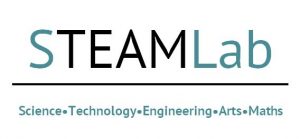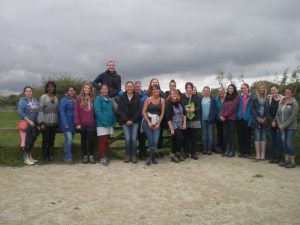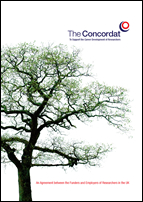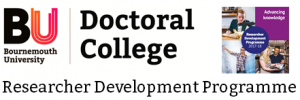 On Wednesday, 11th April 2018, BU’s Research and Knowledge Exchange Office will be facilitating a STEAMLab event on the Industrial Challenges.
On Wednesday, 11th April 2018, BU’s Research and Knowledge Exchange Office will be facilitating a STEAMLab event on the Industrial Challenges.
External Speakers include:
Jayne Codling of the Enterprise Europe Network
Dr. Herbert Daly, IBM Champion, University of Wolverhampton
with other speakers to be confirmed.
What will happen…?
We’re seeking to come up with novel research that could form part of the UK’s Industrial Strategy.
So, who should attend?
We want anyone who thinks they might have something to contribute, and who is available all day on Wednesday 11th April to come along. We will also be inviting relevant external attendees to contribute to the day. We welcome academics, NGO/business/government representatives who wish to contribute to having a positive impact through addressing Industrial Challenges.
What do I need to prepare in advance? What will the sandpit entail?
Absolutely nothing in advance. During the STEAMLab, you’ll be guided through a process which results in the development of research ideas. The process facilitates creativity, potentially leading to innovative and interdisciplinary research ideas. These ideas will be explored with other attendees, and further developed based on the feedback received.
What if I don’t have time to think about ideas in advance?
You don’t need to do this. Some inspiring speakers with a range of backgrounds will be coming along to give you ideas…
What about afterwards? Do I need to go away and do loads of work?
Well… that depends! The STEAMLab will result in some novel research ideas. Some of these may be progressed immediately; others might need more time to think about. You may find common ground with other attendees which you choose to take forward in other ways, such as writing a paper or applying for research funding. Support will be available to progress project ideas after the day.
What if my topic area is really specific, such as health?
Your contribution will be very welcome! One of the main benefits of a STEAMlab event is to bring together individuals with a range of backgrounds and specialisms who are able to see things just that bit differently to one another.
S o, is this just networking?
o, is this just networking?
Definitely not! It is a facilitated session with the primary intention of developing innovative research ideas, which also enables the development of networks. It gives you the opportunity to explore research ideas which you may develop over time, together with the chance to find common ground with academics from across BU and beyond.
So, how do I book onto this event?
To take part in this exciting opportunity, all participants should complete Eventbrite form here and return this to RKEDevFramework@bournemouth.ac.uk by Friday, 6th April. Places are strictly limited and you will be be contacted to confirm a place place on the STEAMLab with arrangements nearer the time. The event will be held in Bournemouth at the Executive Business Centre.
By applying, you agree to attend for the full duration of the event on 11th April (c. 9:30 – 16:30). Spaces will be confirmed from 28/3/18.
If you have any queries prior to submitting your application, please contact Ehren Milner, RKEO Research Facilitator.
 BU will be launching a new network for Early Career Researchers later in 2018
BU will be launching a new network for Early Career Researchers later in 2018 ESRC offer ESRC-funded researchers a one-day media training session that provides the opportunity to develop practical media skills in a safe environment.
ESRC offer ESRC-funded researchers a one-day media training session that provides the opportunity to develop practical media skills in a safe environment.





 It’s been over 18 month since Bournemouth University launched its new
It’s been over 18 month since Bournemouth University launched its new 

 Vitae will be visiting BU on Friday 27
Vitae will be visiting BU on Friday 27 I hope many of you will be able to participate in the event which has been organised in response to feedback from research staff (via focus groups and the CROS survey) that BU should provide better information on career planning for research staff. This event is part of a programme of work as part of BU’s implementation of the Concordat to Support the Career Development of Research Staff.
I hope many of you will be able to participate in the event which has been organised in response to feedback from research staff (via focus groups and the CROS survey) that BU should provide better information on career planning for research staff. This event is part of a programme of work as part of BU’s implementation of the Concordat to Support the Career Development of Research Staff.
 LAST DAY TO APPLY FOR MEMBERSHIP!
LAST DAY TO APPLY FOR MEMBERSHIP! Please read through the
Please read through the 

 Led by Professor Paul Rodgers, the AHRC’s Design Leadership Fellow, the Next Generation Design Research workshops have been created to help you to understand what funding the AHRC currently offers and how to best prepare your AHRC funding application.
Led by Professor Paul Rodgers, the AHRC’s Design Leadership Fellow, the Next Generation Design Research workshops have been created to help you to understand what funding the AHRC currently offers and how to best prepare your AHRC funding application.











 Conversation article: London Marathon – how visually impaired people run
Conversation article: London Marathon – how visually impaired people run Horizon Europe News – December 2023
Horizon Europe News – December 2023